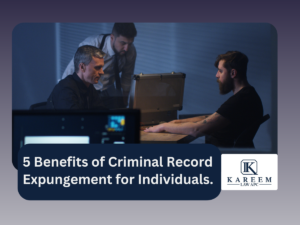As we step into 2023, the landscape of DUI (Driving Under the Influence) cases in California continues to evolve, shaped by legal developments, enforcement policies, and changing societal attitudes toward impaired driving. A common question for individuals facing DUI charges is the likelihood of their case going to trial.
According to a 2022 study by the California Judicial Council, only about 2% of DUI cases go to trial. This is because most DUI cases are resolved through plea bargains. In a plea bargain, the defendant agrees to plead guilty to a lesser charge in exchange for a reduced sentence. For example, a defendant charged with a DUI may agree to plead guilty to a reckless driving charge in exchange for a reduced sentence of probation and no jail time.
Penalties for a DUI in California
The penalties for a DUI in California vary depending on the severity of the offense and the defendant’s criminal history. For a first-time DUI offense, the penalties can include:
- Up to 6 months in jail
- A fine of up to $1,000
- A driver’s license suspension of up to 6 months
- Installation of an ignition interlock device (IID) for up to 6 months
For a second DUI offense within 10 years of the first offense, the penalties can include:
- Up to 90 days in jail
- A fine of up to $1,000
- A driver’s license suspension of up to 1 year
- Installation of an IID for up to 1 year
For a third DUI offense within 10 years of the first offense, the penalties can include:
- Up to 1 year in jail
- A fine of up to $2,000
- A driver’s license suspension of up to 3 years
- Installation of an IID for up to 3 years
In addition to the above penalties, DUI defendants may also be ordered to attend alcohol education or drug treatment programs.
How Often Do DUI Cases Go to Trial in California
DUI cases rarely go to trial in California. Only about 2% of DUI cases go to trial. This is because most DUI cases are resolved through plea bargains. In a plea bargain, the defendant agrees to plead guilty to a lesser charge in exchange for a reduced sentence. For example, a defendant charged with a DUI may agree to plead guilty to a reckless driving charge in exchange for a reduced sentence of probation and no jail time.
There are several reasons why most DUI cases are resolved through plea bargains. First, DUI cases are very difficult to win at trial. The prosecution has a very strong case if they have evidence that the defendant was driving under the influence of alcohol or drugs. Second, DUI defendants often face long jail sentences if they are convicted at trial. Third, DUI defendants often have a criminal record, which makes it more likely that they will be convicted at trial.
However, there are some cases where a DUI defendant may choose to go to trial. For example, a DUI defendant may choose to go to trial if they have a strong defense, such as if they were not driving under the influence of alcohol or drugs. Additionally, a DUI defendant may choose to go to trial if they are facing a very long jail sentence and they believe that they have a chance of being acquitted at trial.
Conclusion
In addition to the above penalties, DUI defendants may also be ordered to attend alcohol education or drug treatment programs. If you have been charged with a DUI in California, it is important to contact an experienced DUI attorney immediately. A DUI attorney can help you understand your legal rights and options, and they can represent you in court. Going to trial is a significant decision, and at Kareem Law APC, we understand the complexities and stakes involved. If you find yourself facing DUI charges and are contemplating going to trial, our dedicated legal team is here to provide expert guidance and robust representation. Contact us at (888) 506-6519.









